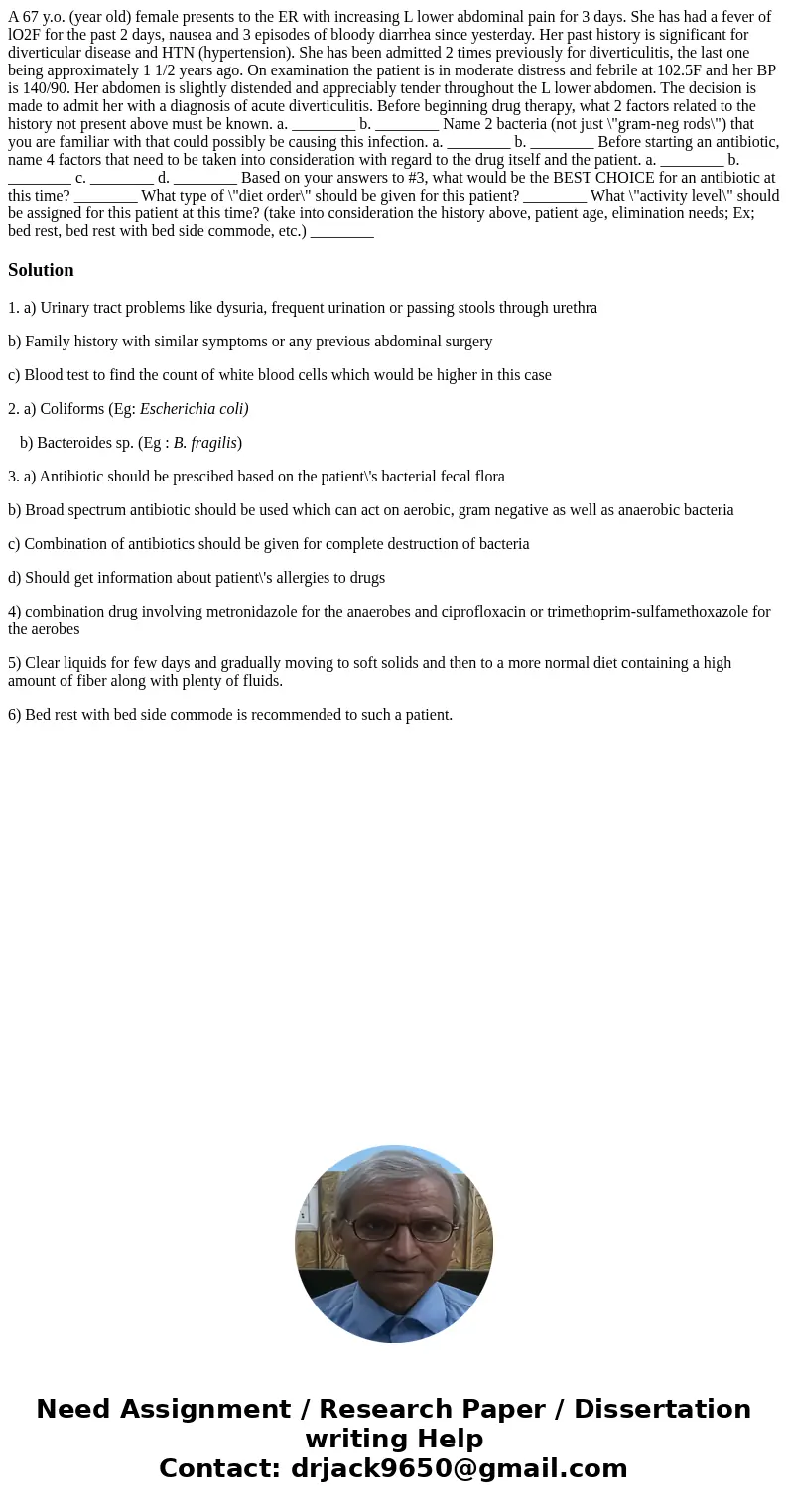A 67 y.o. (year old) female presents to the ER with increasing L lower abdominal pain for 3 days. She has had a fever of lO2F for the past 2 days, nausea and 3 episodes of bloody diarrhea since yesterday. Her past history is significant for diverticular disease and HTN (hypertension). She has been admitted 2 times previously for diverticulitis, the last one being approximately 1 1/2 years ago. On examination the patient is in moderate distress and febrile at 102.5F and her BP is 140/90. Her abdomen is slightly distended and appreciably tender throughout the L lower abdomen. The decision is made to admit her with a diagnosis of acute diverticulitis. Before beginning drug therapy, what 2 factors related to the history not present above must be known. a. ________ b. ________ Name 2 bacteria (not just \"gram-neg rods\") that you are familiar with that could possibly be causing this infection. a. ________ b. ________ Before starting an antibiotic, name 4 factors that need to be taken into consideration with regard to the drug itself and the patient. a. ________ b. ________ c. ________ d. ________ Based on your answers to #3, what would be the BEST CHOICE for an antibiotic at this time? ________ What type of \"diet order\" should be given for this patient? ________ What \"activity level\" should be assigned for this patient at this time? (take into consideration the history above, patient age, elimination needs; Ex; bed rest, bed rest with bed side commode, etc.) ________
1. a) Urinary tract problems like dysuria, frequent urination or passing stools through urethra
b) Family history with similar symptoms or any previous abdominal surgery
c) Blood test to find the count of white blood cells which would be higher in this case
2. a) Coliforms (Eg: Escherichia coli)
b) Bacteroides sp. (Eg : B. fragilis)
3. a) Antibiotic should be prescibed based on the patient\'s bacterial fecal flora
b) Broad spectrum antibiotic should be used which can act on aerobic, gram negative as well as anaerobic bacteria
c) Combination of antibiotics should be given for complete destruction of bacteria
d) Should get information about patient\'s allergies to drugs
4) combination drug involving metronidazole for the anaerobes and ciprofloxacin or trimethoprim-sulfamethoxazole for the aerobes
5) Clear liquids for few days and gradually moving to soft solids and then to a more normal diet containing a high amount of fiber along with plenty of fluids.
6) Bed rest with bed side commode is recommended to such a patient.

 Homework Sourse
Homework Sourse